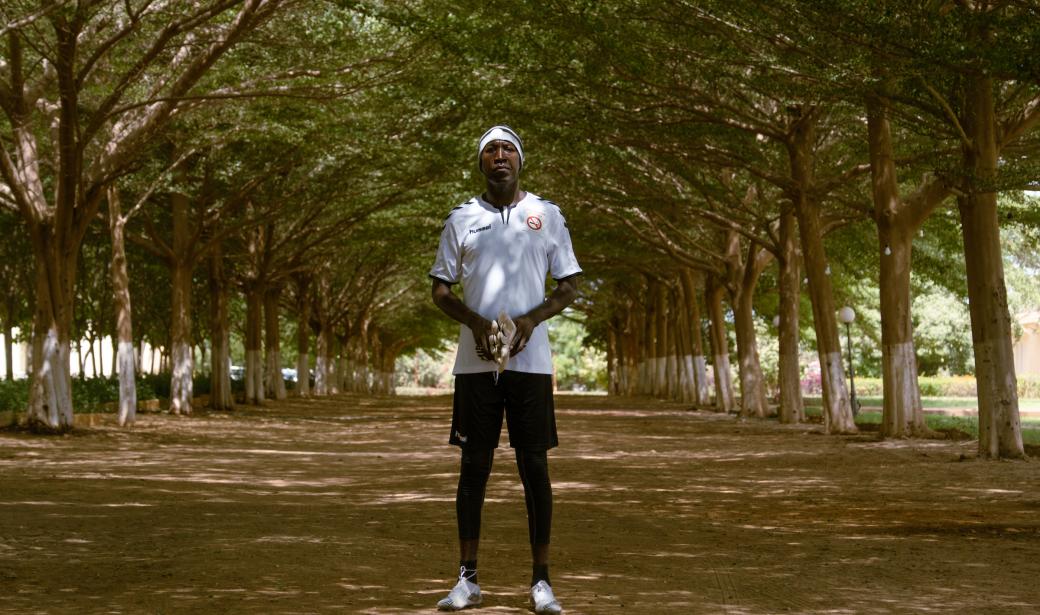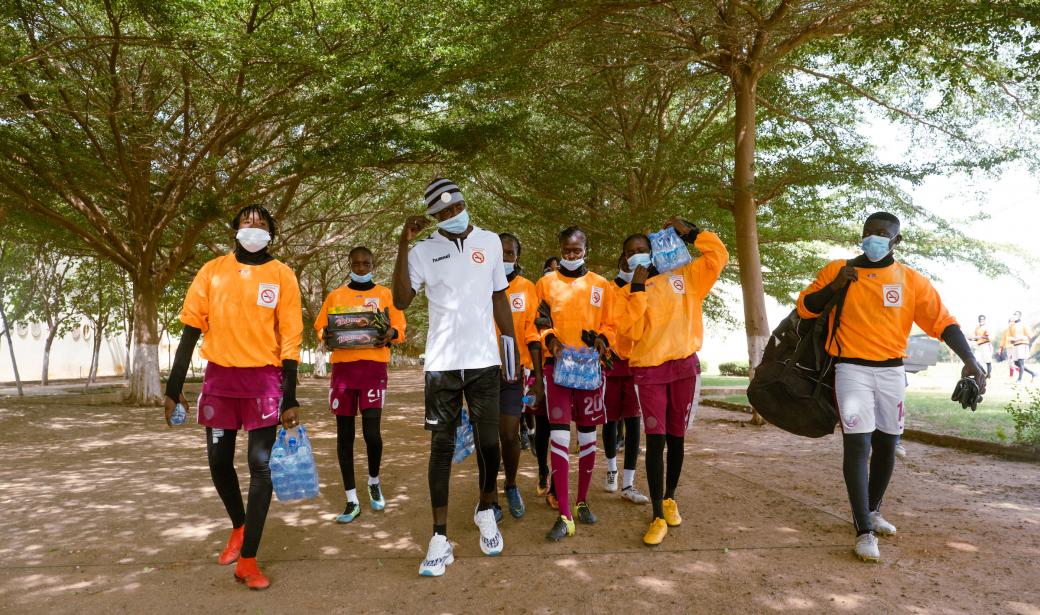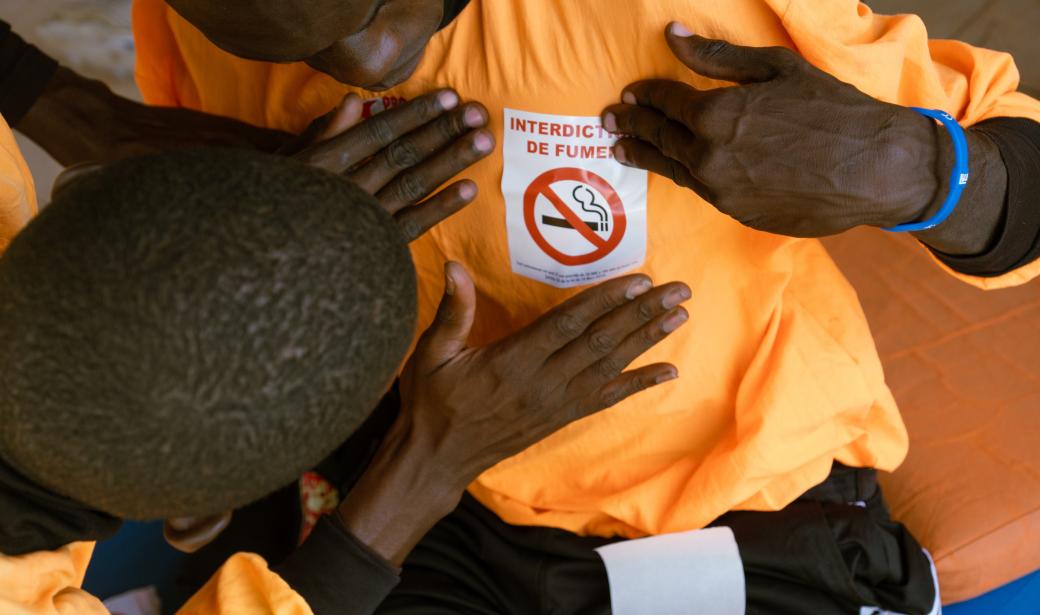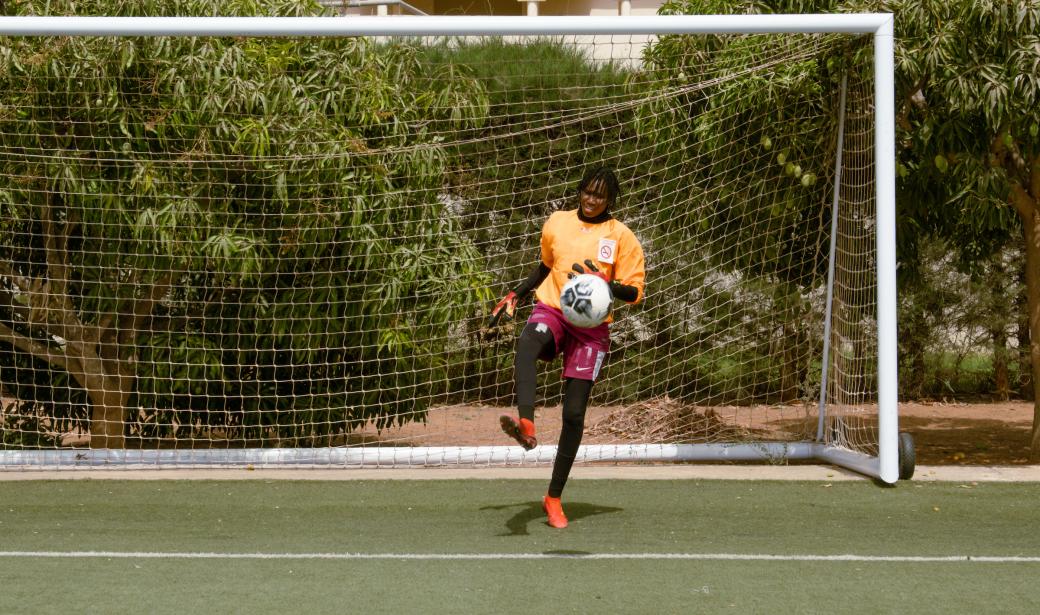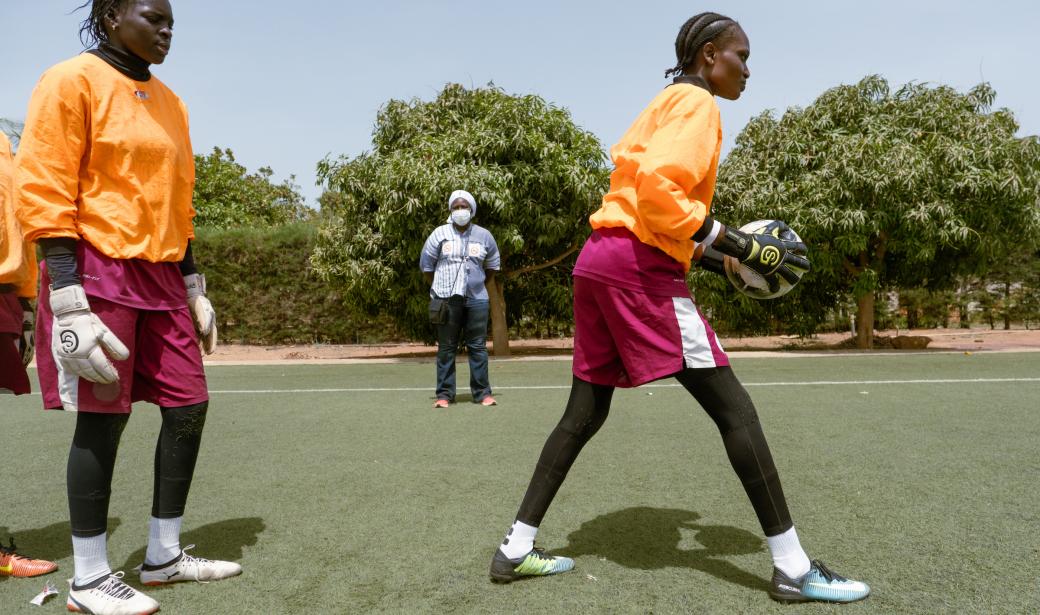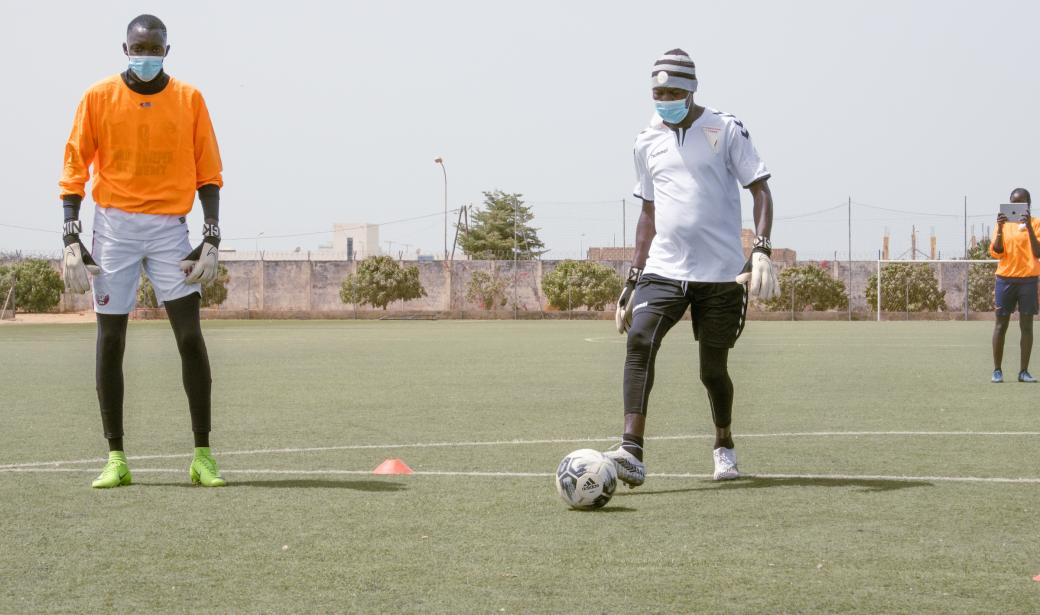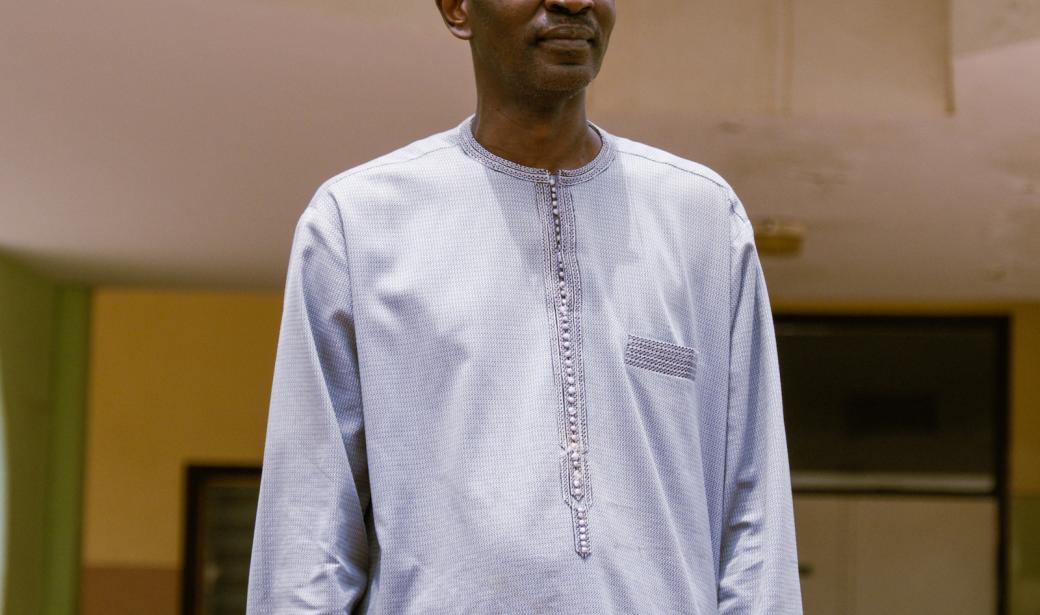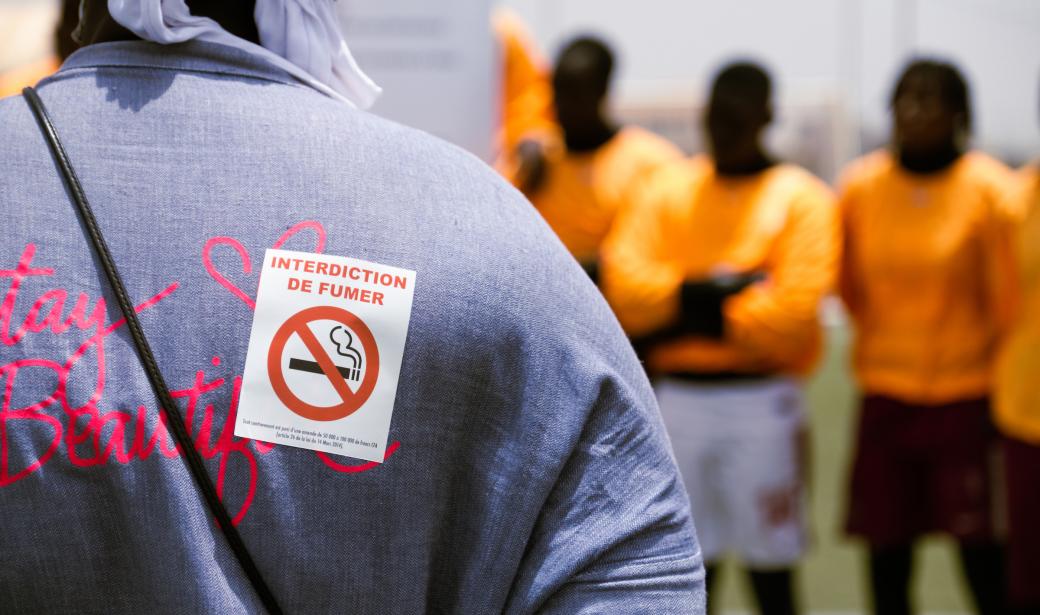Lamine Thiare, a well-known goalkeeper in Senegal and across West Africa, always reminds the young players he coaches about the dangers of tobacco. “If you want to have a long career in sport, do not smoke!”, he tells young players again and again. At 40, Thiare coaches teenagers at the Diambars Institute, a prestigious sport and education academy in Saly, roughly 70km south of the capital city Dakar, as well as the goalkeepers for the women's national A team. He also set up his own institution: the Nkono keepers Academy. In Senegal, over 9% of students aged 13-15 use tobacco.
Diambars, a preeminent sport and education academy also known for its professional football team, Diambars FC de Saly, aims at “making the football passion a driving force for education”.
And Thiare also aims to use the football practice field for schooling on the damage that smoking can cause. “Tobacco can end a career in sports,” Thiare reminds his players every day. “Not smoking has allowed me to enjoy a long career in sport. We coaches must lead by example. That is why I am involved in the fight against tobacco.”
In Senegal, 9.2% of students aged 13–15 use tobacco, according to the 2020 Global Youth Tobacco Survey findings of the World Health Organization (WHO) and Africa Centres for Disease Control and Prevention.
“The coach has been talking to us about tobacco for long time, including about not hanging around smokers,” says Mohammed Edaly Cisse, a goalkeeper from the Nkono keepers academy that Lamine Thiare set up to train young goalkeepers. He says Thiare has made it clear: “Our body is like a machine. It must be well maintained, so we cannot take in something that will destroy our body.”
“Tobacco damages the lungs. I saw people smoking who are now sick,” says Sarata Sane, a goalkeeper for the young women’s national A team. Referring to Thiare, she adds, “The coach always tells us that tobacco is not good for sport people. Whenever I see a friend smoking, I tell her to stop.”
“In addition to adverse health effects, we speak to the youth about their career and their longevity in sport,” she says. “Young people are the main target of the tobacco industry, which is why we need to alert them at a very young age on the fact that there are no benefits in smoking—not only because it will impact their health but also because it is a trap. In order to develop a strong personality, one must have no addiction. One never knows when they will manage to quit once they start smoking.”
A government epidemiological survey found that children have started using tobacco at the age of 7, down from age 10 in 2013. New habits are developing among youth, such as shisha, despite being illegal.
Thiare (white jersey), who has also trained young goalkeepers in Ghana, Ivory Coast and Mauritania and filled them with the same messages on tobacco, proudly boasts that among the 120 student athletes at Diambars Institute, “nobody smokes!”
“Someone like coach Lamine Thiare, who works with children, plays an important role in raising awareness about the dangers of tobacco”, oncologist and national coordinator of the Tobacco control programme at the Ministry of Health.
“It works,” he says, happily. “Every time our players go to a match, we hear good things about them because they show a good example. Their behaviour is impeccable. Not smoking can help them to enjoy a long career in sport. I am living proof of it.”
Technical Officer
Email: ramanandraiben [at] who.int (ramanandraiben[at]who[dot]int)
Communications and marketing officer
Tel: + 242 06 520 65 65 (WhatsApp)
Email: boakyeagyemangc [at] who.int (boakyeagyemangc[at]who[dot]int)



